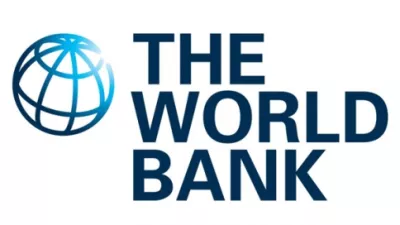New Delhi: Citing a World Bank report, the Congress on Sunday attacked the Modi government. It said inequality has become an inherent part of India’s growth story. Congress also demanded GST reforms to end “brazen corporate favouritism” and support family incomes.
The World Bank’s Poverty and Equity Brief for India, released this month, was discussed by Congress general secretary Jairam Ramesh. He said despite the government trying to spin it positively, the report reveals serious issues.
“Inequality is now deeply embedded in our economic growth,” Ramesh said. He blamed the Modi government’s policies for widening the gap between the privileged few and the dispossessed many.
The report noted that “Over the past decade, India has significantly reduced poverty. Extreme poverty (living on less than USD 2.15/day) fell from 16.2% in 2011-12 to 2.3% in 2022-23,” lifting 171 million people above this line.
However, Ramesh said the government’s lack of clarity and transparency on poverty levels stems from confused and opaque policymaking. He pointed out that since the Rangarajan Committee Report in 2014, no updated poverty line has been set. He urged the government to define it immediately.
He credited MGNREGA (2005) and the National Food Security Act (2013) for setting a safety net. He said they created a base income for crores of families and provided a foundation for the Pradhan Mantri Garib Kalyan Anna Yojana (PMGKY).
Ramesh highlighted that the World Bank warned of a higher poverty rate if updated data, including the 2021 purchasing power parity factor, is used.
He noted that changes in the questionnaire and sampling in the Household Consumption Expenditure Survey 2022-23 create challenges in comparing data over time. He reminded that the government had rejected the 2017-18 survey because it showed falling rural consumption.
Ramesh argued that for a lower-middle-income country like India, the correct poverty measure is USD 3.65/day. By this standard, India’s poverty rate in 2022 was 28.1%.
He said wage disparity remains high, with the top 10% earning 13 times more than the bottom 10% in 2023-24. He alleged that sampling and data issues may cause underestimation of consumption inequality.
Ramesh stressed that the report highlights how large parts of the population are barely above the extreme poverty line. He said social welfare systems like MGNREGA and NFSA must not only continue but be strengthened to protect vulnerable sections.
He emphasized that the Congress’ demand to raise MGNREGA wages, conduct the overdue Population Census (2021), and include 10 crore more people under NFSA is now urgent based on the data.
Ramesh said data quality, consistency, and integrity must be prioritized. He criticized the government’s record, citing suppression of the 2017-18 Consumption Expenditure Survey.
He alleged that data manipulation is a regular tactic of the Modi government when real figures contradict its claims.
He concluded that inequality is now firmly a part of India’s economic growth due to government policies, and the divide between rich and poor is undeniable.
Ramesh also called for urgent tax reforms in GST to lessen its regressive effects, end tax terrorism, curb corporate favouritism, and boost income support and household savings.
The World Bank report noted that rural extreme poverty fell from 18.4% to 2.8%, and urban poverty from 10.7% to 1.1%, narrowing the rural-urban gap significantly. This reflects a 16% annual decline.
It also stated that India has transitioned into the lower-middle-income category. Using the USD 3.65/day line, poverty dropped from 61.8% to 28.1%, lifting 378 million people out of poverty.
The World Bank’s Poverty and Equity Briefs track poverty, prosperity, and inequality in over 100 developing nations.




